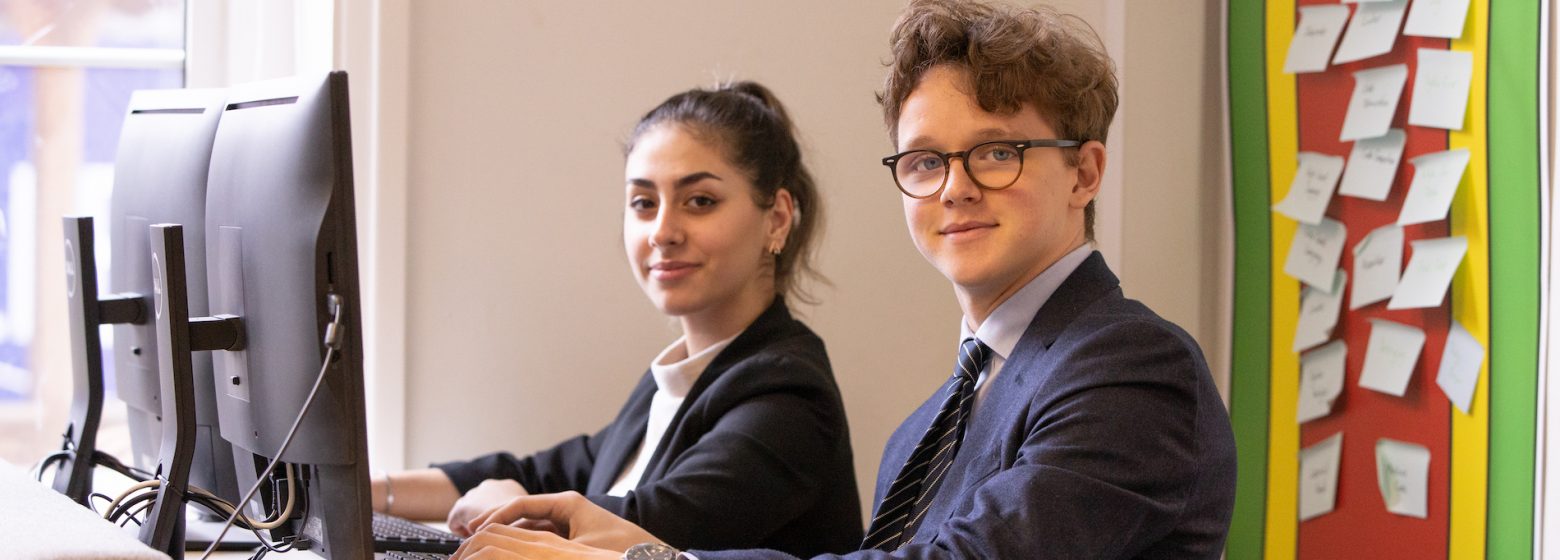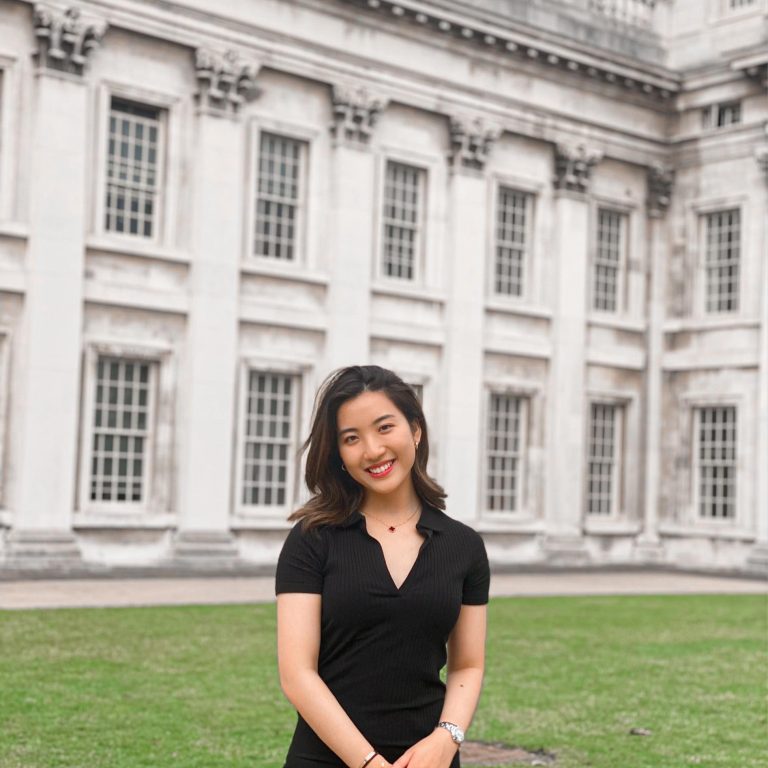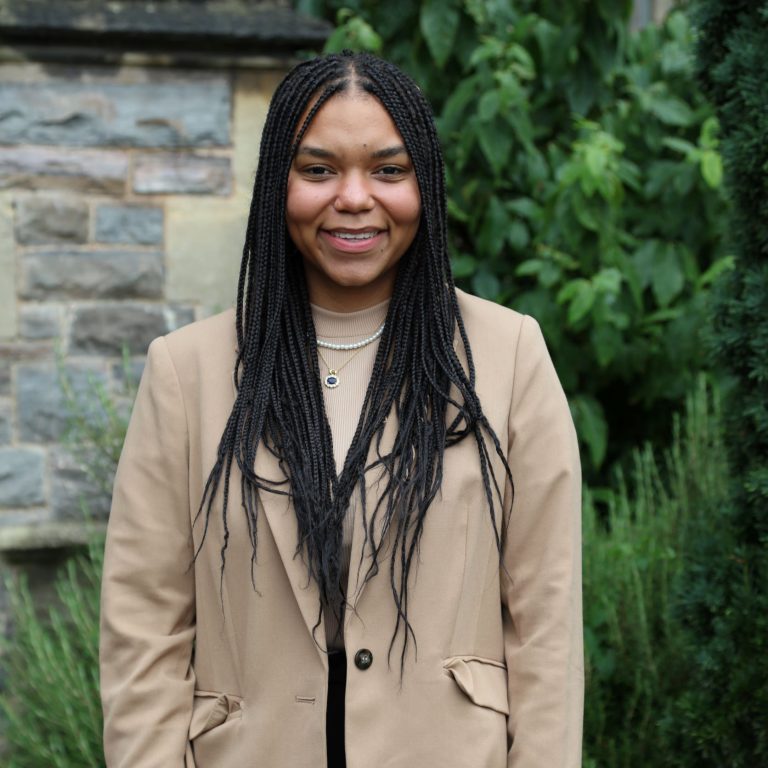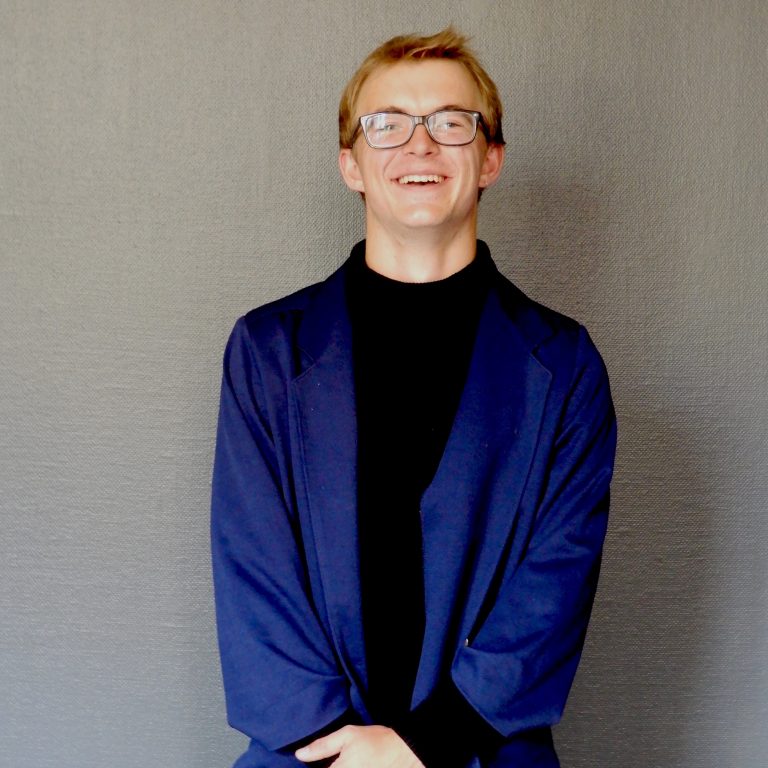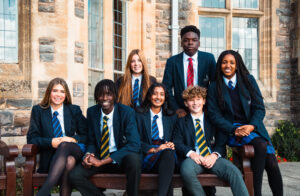Achieve more with one of the UK’s leading providers of the International Baccalaureate
In July 2023 our International Baccalaureate students celebrated an average of 31.9 points: this exceeded the global average score and secured the students places at many universities across the world, including the University of Oxford..
Since becoming an IB world school in 2007, we have helped over 370 students obtain the diploma and its popularity continues to grow with employers and universities.
What is the International Baccalaureate Diploma Programme?
The IB diploma programme is an internationally recognised qualification, which focuses on developing, inquiring, knowledgeable, confident, and caring young people. The IB is taught in 143 countries including the UK.
The International Baccalaureate is based around a student-centric learning programme where students learn in smaller classes with bespoke teaching.
Rather than refining their studies, the diploma programme allows students to maintain a broad learning curriculum providing them with real world insights and skills to provide them the best opportunities in the future.
The IB course, although challenging, appeals to the all-rounders who are academically strong in all subjects.
What is an IB World School?
Only registered IB World Schools are authorised to offer the IB diploma programme. To gain this status schools must prove they have the fidelity to meet the IB programme’s standards, practices, rules, and regulations.
At Taunton we are forward thinking in our approach but traditional in our values, that our students can achieve whatever they set their mind to with the right support and facilities.
Learn more about what it takes to be an IB World School >
Who can take the International Baccalaureate?
We offer the IB diploma which is for students ages 16-19. The IB is the equivalent of 5 A Levels in UCAS points and a well-respected qualification by top universities and employers.
To take part in the IB we recommend that students have a minimum of grade 5 at GCSE (or equivalent) in their chosen subjects. Students will need to be well motivated and passionate about the subjects they study, as well as being prepared to put in the hard work to succeed.
Talk to our admissions team to see whether the IB Diploma Programme is right for you >
ENTRY REQUIREMENTS:
- Students must be 16 or 17 years old (at the start of the course)
- IELTS ≥ 5.5 or CEFR ≥ B2
- Students will need five grade 5 GCSEs or above
- If GCSEs have not been taken, prospective students will be required to pass entry tests in the subjects they wish to take at IB
- Students will be looked at on a case-by-case basis and will attend an interview, either face-to-face or via Skype, to determine whether the IB is the right pathway.
COURSE DETAILS
- Six terms (2 years) of approximately 60 weeks, starting in September
- Study 6 x Subjects (see below for available subjects)
- EPQ – The extended project essay is a personal project that allows in depth study of a subject of particular interest
- ToK – The Theory of Knowledge encourages a questioning approach to knowledge and to develop critical thinking
- CAS – Creativity, Activity and Service encourages students to participate in, and reflect on a wide variety of co-curricular activities that aid personal development beyond the academic
- 450 hours of directed study/year
- 450 hours (minimum) of additional independent study/year
- Frequent and structured mentoring sessions with a personal tutor
- Lessons from Monday morning to Saturday afternoon
- Personalised careers advice
- Guidance and support for university applications
- Sport on Tuesdays &/or Thursdays (students are able to choose their sport/activity)
- No uniform – students are expected to wear their own suits
- Access to the Year 12 and 13 Horizons programme for PSHE, clubs, societies and activities
Why should you take the IB?
By nature, the IB is global. Taking the IB opens doors throughout the UK and the world.
The IB is designed to be innovative from the ground up. Teaching students to think critically, ask challenging questions and learn and develop their skills across various disciplines.
Unlike A Levels where students refine their field of study, the IB allows students to engage in a broad curriculum. The programme allows students to apply what they learn to the real world. The qualification is also very portable, allowing students to open multiple gateways across the world.
Studying the IB also provides students with an advantage when applying to top universities and colleges as many of the students already have the key skills and personality traits needed to be a successful at university.
Former Tauntonians who have studied the IB have told us the programme helps students to become stronger at:
- Leadership
- Research
- Linguistics
- Teaching
How much does the IB cost?
The cost of the IB will vary depending on the needs of the student and whether they are day or boarding students.
We offer a 100% International Baccalaureate scholarship, made possible through philanthropist Ian Evans Lombe.
This scholarship offers students the opportunity to enrich and empower themselves with outstanding facilities and world class teaching.
Find out more about our scholarships > Find out more about fees at Taunton School >
How is the IB assessed?
The IB assesses students throughout the school year, through a mixture of internal and external assessments.
There are a range of assessment mediums to allow students of all capabilities to have the opportunity to shine.
External Assessments
These exams are based on performance and marked through external sources to provide objectivity and reliability in grading. These include:
- Short and Long Form Essays
- Multiple Choice
- Data Response
Internal Assessments
Internal assessments include:
- Oral Presentations for their chosen language
- Performances for their artistic subject
What subjects can you take in the IB?
The IB Diploma course consists of nine elements: six academic subjects and three core components called the Theory of Knowledge, the Extended Essay, and a self-development course called Creativity, Activity and Service. The IB Diploma student chooses three subjects at higher level and three at standard level. The subjects are divided into six groups. These include a literature course, a second language, a humanity, a science and mathematics (at a level appropriate to the student). You can view the six groups below and read more about each subject.
These include English Literature and Language, Mathematics, French, Spanish, German, Italian, Latin, Biology, Chemistry, Physics, Economics, Geography, History, Design Technology, Visual Arts, Music, Philosophy, Psychology, and even learning Spanish or Italian from beginner level.
The Theory of Knowledge encourages a questioning approach to knowledge and to develop critical thinking. The extended essay is a personal project that allows in depth study of a subject of particular interest. Completing the package, the ‘Creativity, Activity and Service’ (CAS) programme encourages students to participate in, and reflect on a wide variety of co-curricular activities that aid personal development beyond the academic.
IB students do consistently well at Taunton School, achieving high scores equivalent to 5 A Levels and often obtaining places at their first-choice university, whether it’s in the UK, Europe or America.

